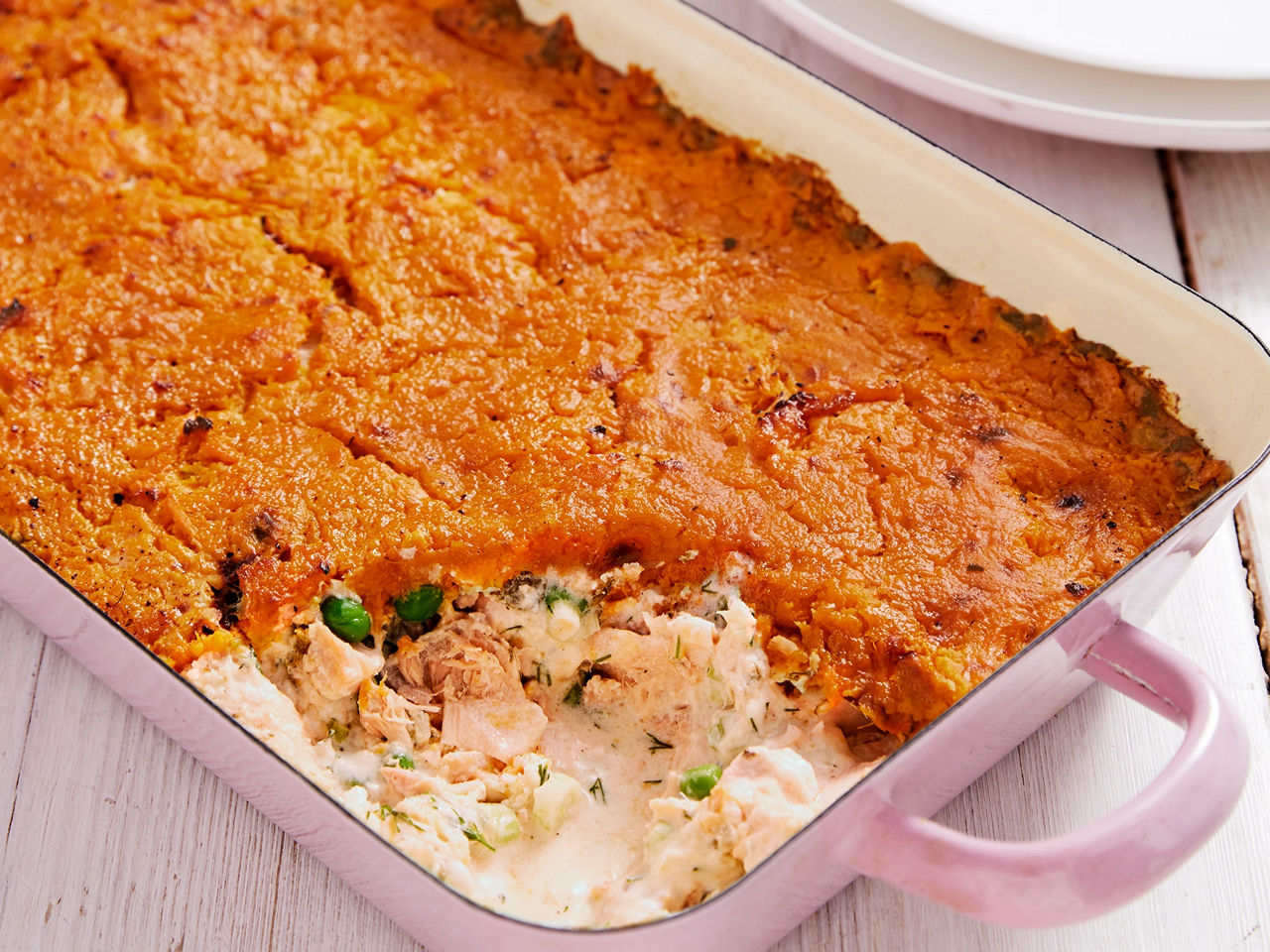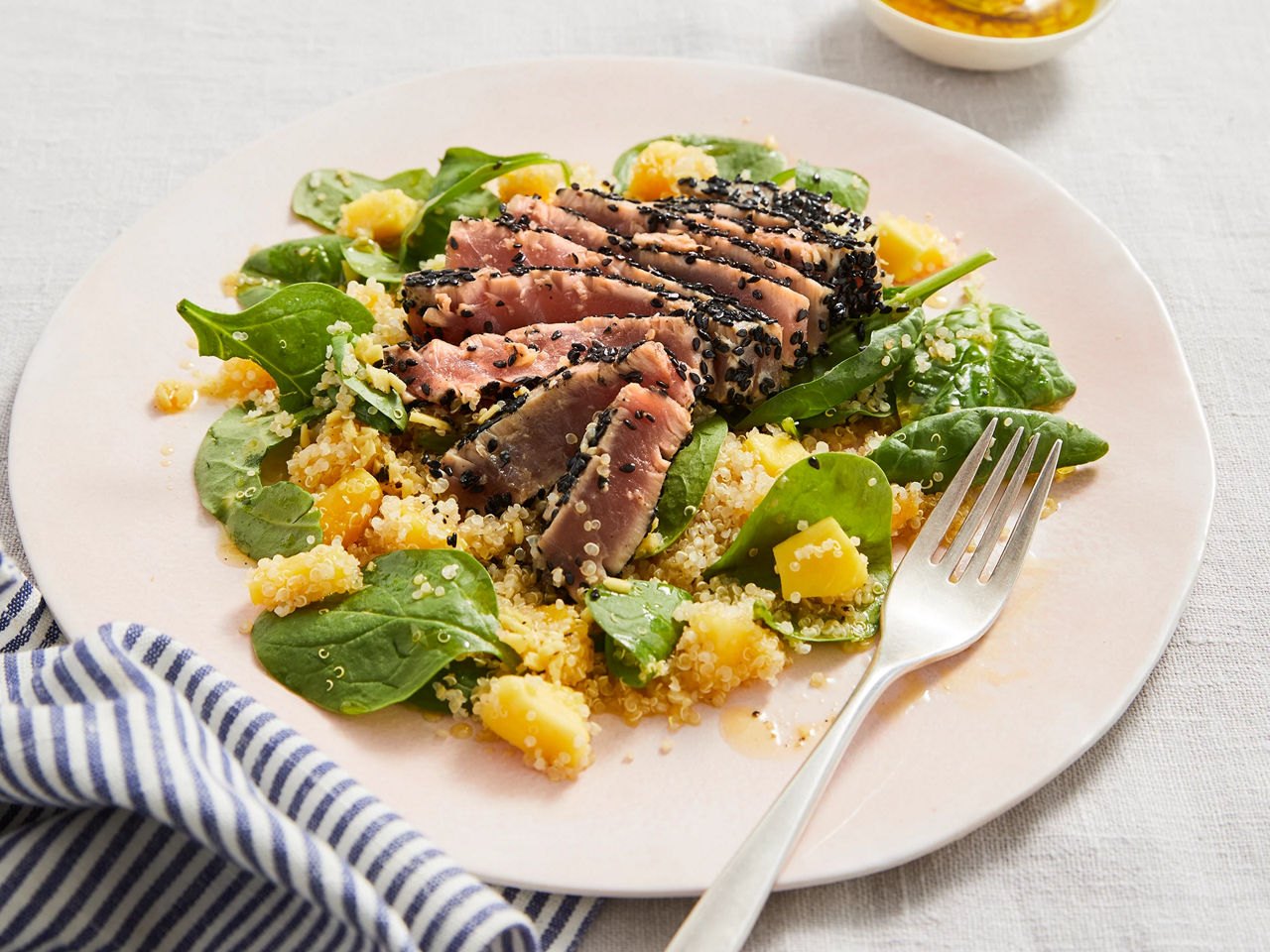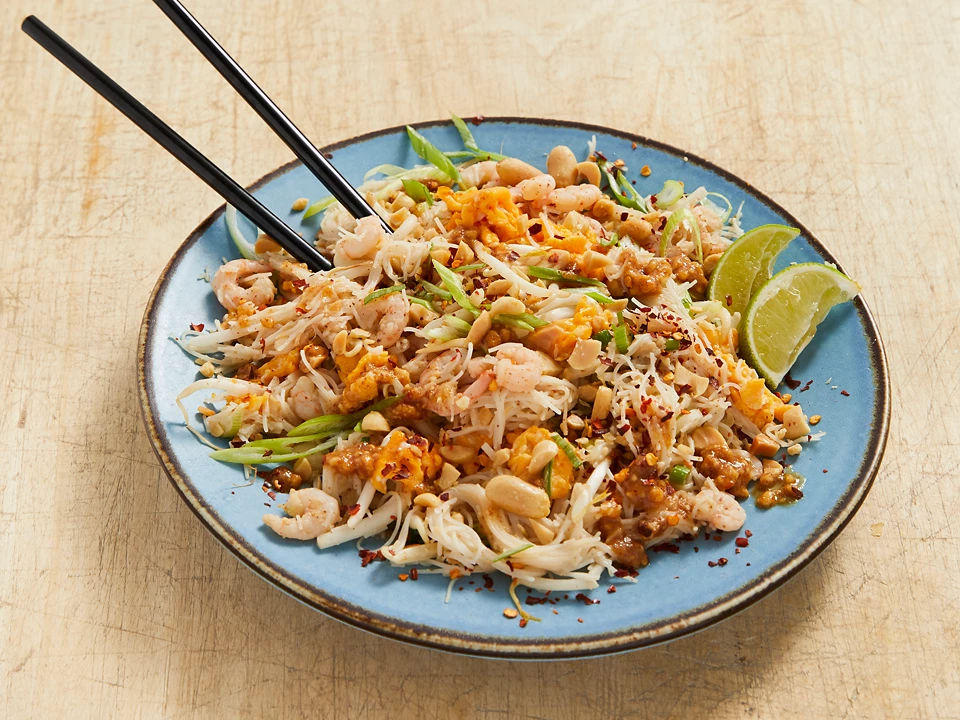Beetroot, garden pea and feta risotto
This beautifully coloured risotto is quick, simple and tasty. For extra flavour, use a good-quality fresh stock and serve with a handful of rocket leaves and a balsamic dressing.

Content highlights
Type of meal
Dinner
Prep time
20 minutes
Cook time
35 minutes
Serves
4
Allergens
nuts (almonds) ◦ milk (feta) ◦ celery (depending on the stock cube used)
This dish is
gluten free ◦ low in fat, sugar and salt ◦ a source of folic acid, fibre and protein
Ingredients
- 4 medium-sized sweet potatoes
- 1 tbsp olive oil
- 1 large red onion, finely chopped
- 450g cooked beetroot (not vinegared)
- 2 garlic cloves, finely chopped
- 100g frozen garden peas
- Leaves from 2 sprigs of rosemary, finely chopped
- 300g wholegrain barley (not pearl barley) or wholegrain brown rice
- 1 litre of a good liquid chicken or vegetable stock (reduced salt)
- Freshly ground black pepper
To serve
- 100g reduced fat, pasteurised feta
- Leaves from ½ bunch of fresh mint
- 25g flaked almonds, toasted
Method
- Heat the oil in a large sauté pan over a low-medium heat. Sauté the onion for about 10 minutes until really soft.
- Meanwhile, pop the beetroot in a blender, puree until smooth as possible and set aside.
- Add the garlic and rosemary to the softened onion and cook for 1 minute. Stir in the barley or rice and cook for another minute. Add a quarter of the stock and stir regularly until it’s absorbed. Then add another quarter of the stock and continue this process until all the stock has been used and the rice is tender. This takes 20-25 minutes.
- As the rice is cooking, cook the garden peas until they are tender, then drain and set aside.
- Stir the beetroot in to the rice pan and season to taste. Warm through for a couple of minutes until piping hot, then stir in the drained peas.
- Spoon the risotto onto serving plates and crumble over the feta cheese. Scatter over the mint, flaked almonds and serve.
A warming, hearty dish that will give you more fibre than a traditional risotto.
Lorraine Pascale
Nutritionist's tip
Wholegrain rice and pasta contain more fibre and slow-release energy than the white variety1.
Nutritional benefits
- Beetroot provides folic acid which can help reduce the risk of neural tube defects such as spina bifida. The NHS recommends taking a folic acid supplement in addition to eating foods high in folic acid during pregnancy2
- Wholegrain brown rice contains fibre which can help prevent constipation caused by your hormonal changes3
- Feta is a source of protein which provides the building blocks for your baby to grow4. Other than mould-ripened soft cheeses, all other soft types of cheese are OK to eat when
- pregnant, provided they're made from pasteurised milk5
- Mint is a source of iron which can help ensure your baby receives the necessary oxygen and nutrients in pregnancy6
| Nutrition value | Amount | % Reference nutrient intake |
|---|---|---|
| Energy | 499kcal | 25% |
| Fat | 12g | 17% |
| Saturates | 2.6g | 13% |
| Sugars | 19g | 21% |
| Salt | 0.96g | 16% |
Nutritional claims are based on single-portion analysis.
- NHS. How to get more fibre into your diet [Online] 2018 Available at: https://www.nhs.uk/live-well/eat-well/how-to-get-more-fibre-into-your-diet/ [Accessed August 2018].
- NHS. Why do I need folic acid in pregnancy? [Online] 2018 Available at: https://www.nhs.uk/chq/Pages/913.aspx [Accessed June 2018].
- NHS. Your pregnancy and baby guide [Online] 2018 Available at: https://www.nhs.uk/conditions/pregnancy-and-baby/common-pregnancy-problems/#constipation [Accessed June 2018].
- NHS. Healthy Eating Pregnancy [Online] Available at: https://www.nhs.uk/start4life/pregnancy/healthy-eating-pregnancy/ [Accessed July 2018].
- NHS. Foods to avoid in pregnancy [Online] Available at: https://www.nhs.uk/conditions/pregnancy-and-baby/foods-to-avoid-pregnant/ [Accessed August 2018].
- British Nutrition Foundation. Nutrition and supplements during pregnancy [Online]. 2015. Available at: https://www.nutrition.org.uk/healthyliving/nutritionforpregnancy/nutrition-and-supplements-during-pregnancy.html?start=2[Accessed July 2018].
Last reviewed: 28th July 2020
Reviewed by Nutricia’s Medical and Scientific Affairs Team



